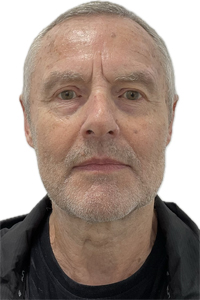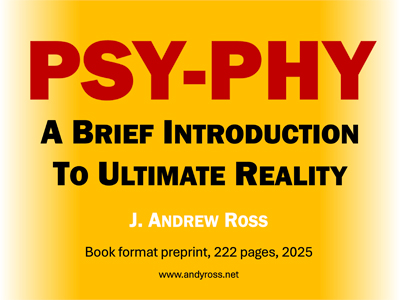|

⦿ Vahid Salemi/AP
Operation EPIC FURY continues unabated: Tehran, Sunday
|
|

|
|
2026 March 2
Morality
Lauren Jackson
Harvard philosopher Michael Sandel thinks we've become too focused on what's good for individuals instead of what's good for communities. He thinks everything has become commodified, hollowing out civic life. He thinks we've failed to prioritize meaningful conversations about morality.
Liberal neutrality is the concept that governments should not take a position on what is right or virtuous. Sandel says that's neither possible nor desirable. People have moral convictions, and their convictions still inform decision making, even if only subconsciously.
Decades ago, Sandel predicted that if people were discouraged from speaking publicly about their deepest convictions, this would create a moral vacuum in public life that sooner or later would be filled by narrow, intolerant moralisms. Today, he says that's what's happened.
Sandel: "I think there's a hunger for a public life of larger meaning and purpose .. The kind of moral and civic renewal we need depends on being more inventive in creating public spaces for moral and spiritual discourse."
AR He's talking about America, of course, but something similar is obviously happening across the West. European civic morality needs boosting. From a pragmatic point of view, given American pressures, it also needs updating to ameliorate its wokeness.
|
|

2022
Four years on: Ukraine is still locked in a war with Putin's Russia. The conflict is now reckoned to be a stalemate,
but Putin still insists on ruining Russia in his vain attempt to subjugate Ukrainians in an imperial grip.
|
|

|
|
2026 February 24
Taiwan Chip Dominance
Tripp Mickle
Taiwan makes 90% of the world's high-end computer chips. Taiwan Semiconductor Manufacturing Corporation (TSMC) is the world's dominant chip manufacturer. US national security officials say a Chinese blockade of Taiwan could bring the US tech industry to its knees.
The Trump administration sees the risk. President Trump has threatened tariffs on semiconductors to bully tech companies to buy more US chips. The United States is on track to spend $200 billion on semiconductor plants through 2030. But it would still account for only 10% of global semiconductor production in 2030.
The US reliance on Taiwan for semiconductors is one of America's greatest vulnerabilities. But chips made in the United States are more than 25% more expensive, and TSMC is widely considered better at building cutting-edge chips than American companies, so the industry is hesitant to shift its production from Taiwan.
After a classified briefing on Taiwan, semiconductor executives were skeptical and asked why China would take Taiwan, since it would damage China. In 2022, when Russia invaded Ukraine, the White House said this showed countries would seize territory even if it harmed their economy.
A semiconductor industry report detailed how Taiwan enabled roughly $10 trillion of global GDP. If Taiwan factories were knocked offline, the Chinese GDP would fall by $2.8 trillion and the US GDP by $2.5 trillion. A conflict would cost the global economy $10 trillion.
TSMC committed more than $50 billion to building new factories in Arizona. Intel promised to expand in Arizona and invest up to $100 billion in an Ohio campus. Samsung pledged $45 billion for two factories in Texas.
TSMC has commitments from Apple, Nvidia, and others to buy enough chips to justify the plants in Arizona. But customers dislike buying chips that cost more and are a generation behind those made in Taiwan.
AR This dependence is strategically ruinous for the United States and amply explains Trump's reluctance to offend Chairman Xi.
|
|

|
|
2026 February 19
War in Europe
Daily Mail
President of the Bundesakademie für Sicherheitspolitik Generalmajor Wolf-Jürgen Stahl spoke at the German−British Society:
"When I see how Putin has acted up to now, and the way that he is in my assessment on a mission against the West, then there is no question of whether he will use military means. If he gets the opportunity, he will use them ..
If NATO territory is occupied by Russian soldiers, then NATO has to say: 'How do we chuck them out so that the territory is restored to NATO, not just de jure but de facto?' ..
"The world is coming apart at the seams. It's turbulent, it's rough, it's lawless, it's in a state of disorder .. I'm not the only one who has difficulties here; the Americans do too. They have an erratic president ..
It's scarcely conceivable how the Poles are suddenly discussing getting their own nuclear deterrent. That's not in the Americans' interests."
AR A Polish nuclear deterrent is very much in Europe's interest, assuming it soon becomes integrated in a pan-European umbrella, together with the British and French deterrents, under the command and control of European NATO.
The Brain and Consciousness
Michael Pollan
Kalina Christoff Hadjiilieva wants to peer over the edge of consciousness.
Her neurophenomenology aims to learn which brain networks are involved in various forms of thinking. She put people in fMRI scanners and asked them to press one button when it felt like their thoughts were moving freely and another button when it felt like they were constrained.
The conscious mind seesaws between constrained and unconstrained thinking. In brain scans, this phenomenology shows up as a contest between the executive control network at the front of the cortex and the default mode network further back in the brain.
Christoff Hadjiilieva conducted an experiment with meditators trained to still their minds and to notice the precise moment when that stillness was broken by an errant thought. She concludes: "The big lesson of meditation is that the mind cannot be controlled."
Meditators pressed a button whenever a thought arose. This followed a jump in activity within the hippocampus. The jump preceded the arrival of the thought in consciousness by nearly 4 s.
Christoff Hadjiilieva: "Something is going on prior to awareness."
AR This is an edited extract from Pollan's book A World Appears. See my blog entry for February 8.
On how much goes on in the brain below consciousness, see my forthcoming book Psy‑Phy.
|
|

www
Year of the Fire Horse
|
|

|
|
2026 February 17
Liberals and Atheism
Christopher Beha
A good atheist deals not in faith but in facts, not in belief but in knowledge. The New Atheist morality was that people ought to have the freedom to decide for themselves.
The most prevalent atheist world view is scientific materialism. The material world is all that exists, humans can know this world through sense perception, and the methods of science convert sense data into general principles that work.
Existentialists begin with the will of the subjective, conscious agent. Romantic idealism treats each of us as creating the reality we live in. Our subjective experience is all we know.
Romantic idealism opposed Enlightenment rationality as well as religious authority. Romantic idealists have an ethics of authenticity. They reject religious belief as an inherited response to existential problems that we must work out for ourselves.
Like scientific materialism, romantic idealism revels in the lack of a solid foundation. Each of us constructs our own truth. This relativism carries clear dangers.
Building meaning from scratch is difficult. The outside world cannot be ignored or overpowered through force of will. The authentic life recognizes both the external material world and the internal ideational world and seeks to reconcile them.
Early liberals said our status as creatures of God gave us natural and inalienable rights. Modern liberals link the global rise of intolerant illiberalism to religion.
AR Science and existentialism can work well together, as I argue in Psy‑Phy.
|
|

|
|
2026 February 16
Rearmament Is Not Warmongering
Richard Knighton, Carsten Breuer
Europe must now confront uncomfortable truths about its security. The threats we face demand a step change in our defence and security. European leaders have discussed the consequences at the MSC.
Russia's forces are rearming and learning from the war in Ukraine in ways that could heighten the risk of conflict with NATO countries. This is a reality we must prepare for.
European governments have committed to the biggest sustained increases in defence spending since the end of the cold war. People must understand the difficult choices governments have to take in order to strengthen deterrence.
Deterrence fails when adversaries sense disunity and weakness. If Russia perceives Europe in this way, it may be emboldened to extend its aggression beyond Ukraine.
Europe is powerful. NATO is the most successful military alliance in history. Its military might is unsurpassed. We have long been adapting to the new security reality.
Britain and Germany are deepening cooperation. The EU SAFE initiative will inject €150 billion to strengthen Europe's defence industrial base. When Europe acts together, we are a formidable force.
AR Well said, sirs.
|
|

|
|
2026 February 15
Munich Security Conference
CNN
Minutes after US Secretary of State Marco Rubio told the MSC in a diplomatic speech that the United States and Europe "belong together," his Chinese counterpart spoke.
Chinese foreign minister Wang Yi: "China and the EU are partners, not rivals. As long as we firmly grasp this point, we will be able to make the right choices in the face of challenges, prevent the international community from moving toward division, and promote the continuous progress of human civilization."
Rubio said during a Q&A that it would be "geopolitical malpractice" if "two of the big powers on the planet" didn't communicate to manage their differences.
|
|
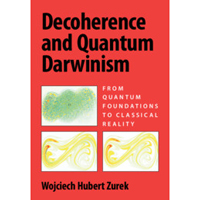
CUP
|
|
Quantum Darwinism
Philip Ball
Wojciech Zurek has been working for decades to understand the transition from quantum rules for the behavior of small things to the rules of classical physics. His key idea is decoherence.
Arguments over quantum mechanics are about ultimate reality. Quantum theory supplies the probabilities of measurement outcomes for small systems. In Heisenberg's theory, quantum uncertainty is ignorance about something that lacks a truth value before we measure it.
In Schrödinger's theory, the state of a quantum system is represented by its wave function. The wave function lets us predict the probabilities of the possible outcomes of a measurement of that system. Before we measure a property, all its possible outcomes are said to be in a superposition. The act of measurement seems to replace this superposition by something definite.
For Heisenberg and Bohr, classical physics describes reality, and quantum theory describes what we observe. We choose where to cut them. We need to explain the quantum-to-classical transition.
Quantum mechanics says nothing about how the probabilities in the wave function "collapse" into a single observed value. In the Copenhagen interpretation, the collapse reflects the classical world we experience. In the many-worlds interpretation, there is no collapse, and all states are realized in parallel universes.
In the 1970s, Zurek and H Dieter Zeh looked closely at all this. Quantum theory describes two particles that become entangled by a single wave function. Measurement entangles quantum objects with the measuring instrument. As any quantum object interacts with its environment, it becomes entangled with it. Zeh and Zurek call this process decoherence.
Fora dust grain, collisions with photons and air molecules trigger decoherence in about 10−31 s.
Entanglement with the environment imprints information about the object on the environment. Some quantum states can generate multiple imprints on the environment without decoherence. The interactions that generate an imprint leave the system in its previous state.
Zurek calls such "pointer" states "fit" because their information is selected for amplification to the classical world. This is quantum Darwinism. Preliminary experiments support his claim that most of the information about a quantum system is set by very few imprints in the environment.
The decoherence theory says all the imprints are identical. Quantum Darwinism says our classical world emerges from the probabilities. Observing an object recruits it to classical reality.
The Copenhagen interpretation says the wave function is epistemic. The many-worlds interpretation says it's ontic. Zurek says it's both. Before decoherence, all the states coexist. Decoherence selects one of them as an element of our reality.
AR All this is gratifyingly consistent with what I claim in my new book. This is no surprise, given that I read Zeh's seminal book on decoherence back in the 1980s. See my Psy‑Phy.
|
|

Warner Bros. / Everett Collection
Wuthering Heights
Writer-director Emerald Fennell's new adaptation of Emily Brontë's Gothic novel is her best film to date.
It glories in the clash of beauty and filth in Brontë's desolate tale of romance in a tempestuous climate.
Cathy Earnshaw (played by Margot Robbie) wades through pig's blood on her way to the Yorkshire moors
near her home, soiling her dress with viscera. Fennell brings the book's simmering sexual repression to
a boil with a stripped-down plot focused on the bond between Cathy and Heathcliff (Jacob Elordi).
The film opens with erotic groaning sounds over a black screen, revealed to be the final gasps of a
man being hanged. Fennell wants to show how sex and death are intertwined.
|
|

|
|
2026 February 13
NATO and MAGA
Friedrich Merz
In the era of great power rivalry, even the United States will not be powerful enough to go it alone. Being a part of NATO is not only Europe's competitive advantage, it is also the United States' competitive advantage. So let's repair and revive transatlantic trust together.
The culture war of the MAGA movement is not ours. Freedom of speech ends here with us when that speech is directed against human dignity and the basic law. We do not believe in tariffs and protectionism, but in free trade. We stand by climate agreements and the WHO.
In the age of great powers, our freedom is no longer a given; it is threatened. Firmness and willpower will be needed to assert this freedom. Autocracies may have followers, democracies have partners and allies. We won't do that by writing off NATO.
Together we have entered an era that is once again marked by power and big power politics. It is fast, harsh, and often unpredictable. These powers exploit natural resources, technologies, and supply chains using them as bargaining tools.
Epstein and the Kremlin
Françoise Thom
Jeffrey Epstein and Ghislaine Maxwell organized a gigantic pedophile ring. Russian state media used it to condemn degenerate global elites. Further investigation reveals a close partnership between Epstein and the Kremlin.
Epstein was an expert in tax havens and money laundering and had good contacts in Moscow. One contact was FSB graduate Sergei Belyakov, who as deputy minister of economic development sought Epstein's advice on how to circumvent western sanctions in 2014.
Epstein used several Russian banks to process payments related to his sex trafficking network. Some of his victims came from Russia and Belarus. One of his bank accounts recorded thousands of transfers totaling more than a billion dollars.
Epstein's female assistant Lana graduated from the Moscow State Institute of International Relations. She may have been an agent infiltrated to penetrate the world of IT and AI, where thousands of Russian computer scientists worked for big US companies. She ended up becoming a model for an agency owned by a French pimp who died in 2020.
In 1982, Epstein founded a financial management company for billionaire clients. Robert Maxwell became one of Epstein's first clients. Between 1989 and 1991, Maxwell created a network of shell companies across the West to help the KGB export 8 tons of platinum, 60 tons of gold, truckloads of diamonds, and up to $50 billion in cash. When Maxwell died in 1991, Epstein inherited not only his favorite daughter Ghislaine but also part of his networks.
In post-communist Russia, former KGB officers made money compiling compromising files on and for the oligarchs. When Vladimir Putin came to power, he turned such kompromat into an instrument of government.
Epstein created a kompromat supermarket in the United States. He invited wealthy Americans and others to his luxurious homes filled with young women and secret cameras. He used the kompromat to become a billionaire before he was arrested in 2006.
Donald Trump and Epstein were friends for decades. In 1992, Trump hosted a "calendar girl" contest at Mar-a-Lago for just the two of them. But in 2004, they clashed when they both bid for the same property in Palm Beach.
Epstein was furious: "The problem with Trump is that he has no scruples."
AR I think the speech by Merz was exactly right, well balanced. The full version in German (ZDF) was even better.
|
|

|
|
2026 February 11
The Origins of Life and Mind
Conor Feehly
Agents have causal power over themselves and their environment. To behave with agency, you need to absorb information, use that information to solve problems, and then learn by remembering how those actions turned out. This is cognition.
Researchers investigating slime moulds, plants, and prokaryotes and revealed surprising abilities such as learning, forming memories, and adjusting decisions as new information arrives.
The gene regulatory networks (GRNs) found inside every cell determine how genes are expressed. They are networks of genes, proteins, RNA, and other biomolecules interacting with one another.
Michael Levin et al simulated GRNs based on biological data. They trained each GRN to associate the presence of a neutral drug with a functional drug. After enough training, they achieved the desired behavioral change in each GRN without the presence of the functional drug.
Causal emergence was developed in relation to the integrated information theory (IIT). IIT says that the extent to which the brain is working as a whole can be measured by Φ, a measure of conscious awareness. If we can better predict future brain states by considering the brain from a wider view, rather than from its parts, then the brain has greater Φ and greater causal emergence.
Causal emergence occurs when a complex system is acting as an agent rather than a set of parts. If the parts are doing their own thing, Φ is low. If they lock into collective patterns, Φ is higher.
Levin et al found that after a GRN learned to associate a neutral drug with a functional one, it had higher Φ. They then trained GRNs to learn and then unlearn a behavior. They expected the agent to forget the unlearned behavior and Φ to fall. But they found that Φ kept rising.
Levin: "If you are forced to lose that memory, you don't lose your Φ gains, which is astounding because it means there is an asymmetry to this, it becomes an intelligence ratchet."
AR The idea that some kind of agency appears deep down in the biological stack, where Darwinian evolution is presumed to be mindless, is intriguing. But integrating that idea within a rigorous science of biology is likely to be a major challenge.
As for IIT and its notion of causal emergence, characterizing cognition is a good application of the theory. IIT was developed to explain consciousness, where I think it fails, but as a theory of cognition it shines. See Psy‑Phy.
|
|

⦿ Lab Ky Mo/SOPA Images
London, 2025
|
|
2026 February 10
Rewiring Your Brain
Peter Lukacs
Rewiring the brain is a metaphor. The brain can reorganize itself by forming new neural connections, strengthening existing ones, or rerouting functions. It is like a living forest where paths are gradually worn or lost based on use.
This capacity allows the brain to adapt to new experiences, recover from injuries, learn new information, and compensate for lost functions. But neuroplasticity has limits. It requires effort and may not result in perfect recovery or transformation.
Plasticity is a gradual process. Synapses strengthen or weaken. New dendritic branches grow while others retract. A stroke survivor can regain movement in a limb by recruiting healthier networks. A child with dyslexia can gradually develop new reading pathways.
Over a lifetime, experience alters the synaptic organization of the brain. The brain is also shaped by age, hormones, stress, and illness or injury. The same experience can leave different traces in different bodies at different ages.
What looks like recovery at first glance is often the brain finding a workaround. Neurons can expand their reach. Novel experience causes neurons to fire in new patterns. Those neurons can trigger gene programs that support dendritic and synaptic growth.
Neuroplasticity responds to sustained engagement. Learning a new language activates distributed regions across both hemispheres, linking auditory perception, working memory, and executive control. Playing a musical instrument does something similar.
Physical activity improves cerebral blood flow. Social interaction recruits emotional and linguistic circuits simultaneously. With repetition, novelty, and sustained effort, these activities nudge the brain toward adaptation.
Overarching claims of brain rewiring can misrepresent the pace and the nature of neural change. This can help patients understand that their brains are not static or irreparably broken. In clinical settings, it can reduce shame and fatalism.
But the metaphor is misleading. Neuroplasticity is incremental and slow. Brain changes are often unconscious and tied to emotion and new behavior. In fact, neuroplasticity resembles erosion and regrowth.
Mapping neighborhoods in the brain
Amber Dance
Neuroscientists making brain maps can now go cell by cell to define its internal genetic activity. Recently, they fed genetic data from mouse brains into a machine learning algorithm to make more detailed brain maps.
A cell's identity is determined by which of its genes are turned on, as represented by the sequences of RNA molecules present in the cell. We can slice up a brain, measure the RNAs from each cell, and then map the results back to the cells' original locations.
The Allen Institute's latest mouse brain atlas, published in 2023, includes more than 5,000 different cell types. The first-draft Human Brain Cell Atlas, based on 3 million cells from the brains of three deceased people, defines 3,313 cell types.
Most brain regions contain a mixture of cell types. To map them, we look at how the cell types group together. Starting with the RNA profiles of cells in a mouse brain, a machine learning algorithm can be trained to predict a cell's gene expression and type based on those of its neighbors.
The algorithm CellTransformer learned how and where different types of brain cells group together. From there, it built a high-resolution map of those groups. It mapped out hundreds of meaningful neural neighborhoods, each made of a blend of different cell types.
CellTransformer can accurately match known brain maps and adds novel subdivisions. The next step is to apply it to human brains.
AR It's good to get a practitioner's view of how neuroplasticity works in practice, when it can all too easily be misrepresented by a theorist − or by a breezy generalist like me.
Brain maps generated by AI are more my bag. Great work!
|
|

|
|
2026 February 9
Value and Time
Thomas Nagel
Samuel Scheffler says our emotions and attitudes change with time. Our attitudes toward past and future are asymmetrical. Leading a life is incompatible with maintaining that when something happens can have no bearing on its value. Strong attachments are essential.
Our epistemic and practical relations to the past and the future are different. This makes asymmetrical attitudes appropriate. Our lives are extended in time but confined to the present moment. A life gets its shape through strong and enduring attachments.
Scheffler: "Displaying differential concern for the people with whom one has close personal relationships is .. part of what valuing such relationships consists in."
Attachments define how we engage with the world. We are faced with demands from the world and other people, and with the standards imposed by difficult tasks. We defer to the needs and interests of others, and recognize them as a source of constraints.
Scheffler: "One's personal attachments and relationships, and the social roles one occupies, define much of the content of morality as most people understand it."
Value and finance
Oren Cass
Financialization is the term for making financial markets and transactions ends unto themselves. It turns businesses into sources of cash, workers into a cost, and customers into revenue streams.
Financialization has made American businesses less resilient, less innovative, and less competitive. It has been a major cause of slow wage growth and rising inequality. It has corrupted sectors with vulnerable customers and then pointed to the higher cash flow as value creation.
The financial sector focuses on the highest financial return. Stock markets are dominated by hedge funds that trade using mathematical formulas. Their business model is built on gaming the system. Mergers and acquisitions tend to destroy value. Harvard Business Review: "M&A is a mug's game, in which typically 70% to 90% of acquisitions are abysmal failures."
American economic dynamism has fallen precipitously over the past 30 years. Only the financial centers made gains. Before then, when finance played a supporting role, America produced broad-based prosperity, constant technological progress, and well-functioning democracy.
Financialization has benefited only a few people. It is a grift, a rarefied form of bookmaking, of no net value to workers and consumers, the economy, or society as a whole.
AR Value starts in the here and now, in a good life, and ideally spreads outward before it decays. Financial value is based on an abstraction from a good life. The abstraction creates an illusion of stability that allows it to spread further before decaying more catastrophically. For proof, recall the 2008 crisis and its aftermath.
|
|
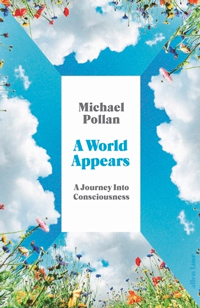
Penguin
|
|
2026 February 8
A World Appears
Michael Pollan
Scientists are learning that more and more animals and creatures are conscious. AI is going to be an enormous challenge to the question of what it means to be human. We're approaching a Copernican moment of redefinition.
People in Silicon Valley say that if AI is conscious, then we're going to have to give it moral consideration. Well, really? Have we given moral consideration to one another? Who we grant personhood to is a very subjective human decision.
Some researchers say the origin of consciousness is with feelings, not thoughts. Feelings are the language in which the body talks to the brain. The body gets the brain's attention with feelings. It's hard to imagine how a machine could have feelings.
The Turing test has already been passed. The machines we're living with are telling us they're conscious. Some of us want them to be conscious in some way. It's easier to have a relationship with a chatbot than another human.
Buddhism has been thinking about consciousness for a very long time. It has been raising these questions about the self and giving people tools to transcend the self. We cling to the ego firmly, but we do a lot of things to get away from it.
The ego is very useful, so we shouldn’t be too critical of it. But when we transcend the self, we connect to things larger than ourselves. There's a lot else going on, as you learn when you meditate and use psychedelics.
The sentience of plants
David Shariatmadari
Michael Pollan learned that when plants are damaged, they produce an anesthetizing chemical, ethylene. Was this a form of self-soothing, like the release of endorphins after an injury in humans? Where does it leave our efforts at ethical consumption if even vegetables hurt?
Pollan has devoted himself to writing since the success of his first book in 1991. A later psilocybin trip in his garden tuned him on to the mysteries of consciousness: "I was as certain of the sentience of the flowering plants around me as I had been of anything up to that point."
A World Appears is all about consciousness. Pollan approaches it under four headings: sentience, feeling, thought, and self. He says sentience is where the sparks of consciousness ignite. For feeling you need a body, which is a necessary prerequisite for consciousness.
He says we know cows and chickens are conscious but is skeptical about machines: "There's an active conversation, especially here in Silicon Valley, that we should be extending moral consideration to machines. I think that that would be a tremendous mistake."
Pollan reflects on an experience he had last year: "One of the keys I've learned about psychedelic experiences: you need to surrender to them .. psychedelic experience and meditation have very strong links .. another mystery of consciousness."
AR I don't know how much this adds to the science of consciousness, but it would seem to be an interesting contribution to its literature. Does consciousness need a body? It needs a sense of self, whose normal path of agency is through its body.
|
|
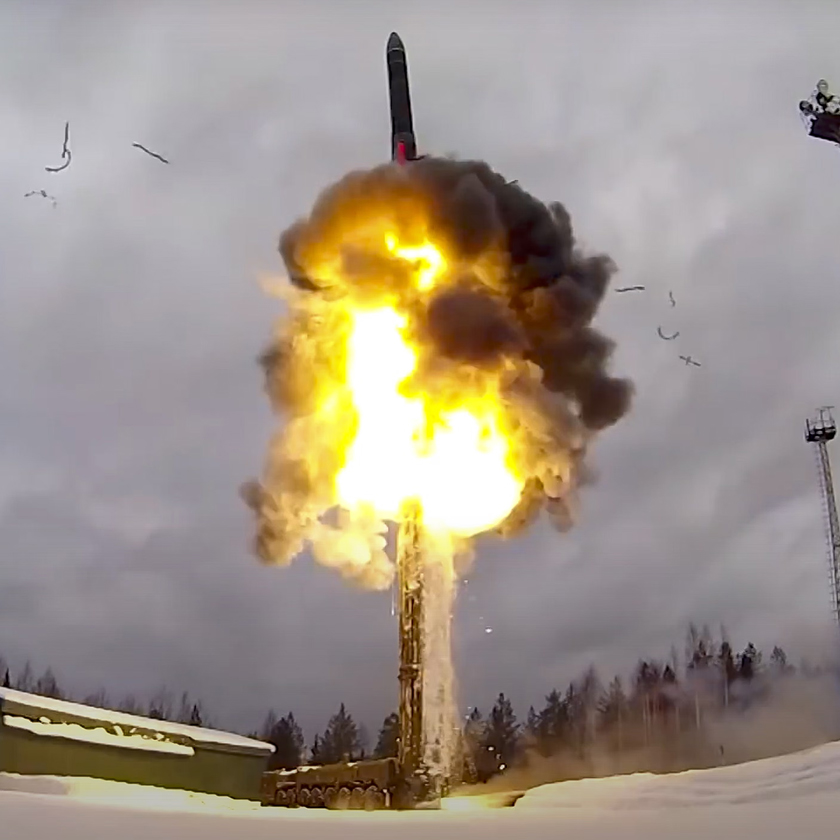
Russian defence ministry press service
Russian Yars ICBM, military drill, 2022
UN Secretary General António Guterres urges the United States and Russia to sign a new nuclear arms control deal:
"For the first time in more than half a century, we face a world without any binding limits on the strategic nuclear
arsenals of ..the two states that possess the overwhelming majority of the global stockpile of nuclear weapons ..
This dissolution of decades of achievement could not come at a worse time."
The existing treaty expired on 2026-02-05.
|
|

|
|
2026 February 5
Google LLC
Financial Times
Google plans to double its capex this year to $185 billion as strong growth in its advertising and cloud businesses gives it the financial firepower for a huge bet on AI.
Google has gained momentum in the AI race with the launch of new Gemini models. Its huge AI investments were supported by big jumps in earnings and cash flow.
Google CEO Sundar Pichai: "Our capex spend this year is an eye toward the future. The demand we are seeing across the board for our services − and what we need to invest in Google DeepMind and in cloud − is exceptionally strong."
Google's net income increased 30% to $34.5 billion in Q4 over 2024. Revenue rose 18% to $113.8 billion. Annual sales surpassed $400 billion for the first time. Its Gemini app now has 750 million monthly users.
Google's parent company Alphabet made $132 billion of profit in 2025. Alphabet shares have rallied 61% in the past 12 months, pushing its market cap past $4 trillion.
AR For years I've regarded Google as the best among the Magnificent Seven. Their business model, their recruitment strategy, and their strategic investments put them at the top. Buy.
Full disclosure: Earlier this century, at SAP, I worked in a team that developed a search engine, so I studied Google's tech stack closely. It's good.
|
|
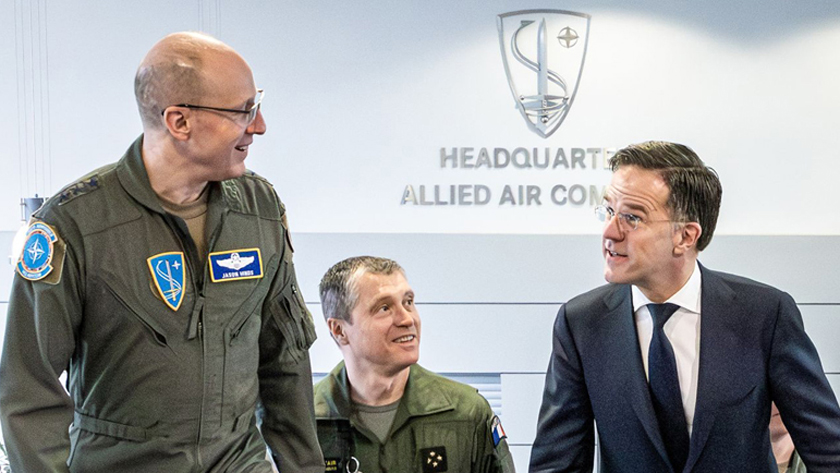
NATO Allied Air Command
NATO Secretary General Mark Rutte on a visit to NATO Allied Air Command in Germany
Rutte says Europe cannot defend itself without the United States. He met with members of the
European Parliament committees on security and defence (SEDE) and foreign affairs (AFET)
to discuss current security challenges facing Europe. He underlined the need for
increased defence investment, innovation, and industrial production,
as well as for close cooperation between NATO and the EU.
|
|

|
|
2026 February 2
Astrocytes Again
Ingrid Wickelgren
The human brain is a network of billions of neurons. To understand it, we study neuroscience.
The large brain cells called astrocytes help to tune brain circuits and thereby control overall brain state or mood. Astrocytes have shapes that can envelop up to millions of synapses and affect information flow. They monitor and tune higher-level network activity by neuromodulation.
Astrocytes tile the brain, filling the space between neurons like packing peanuts. They suck up excess neurotransmitters, buffer potassium, and secrete energy molecules for neurons. They work slowly via calcium waves that spread over period from seconds to minutes.
When animals are startled, neurons in the brainstem release norepinephrine along fibers that fan out across the brain. Norepinephrine triggers astrocyte waves. When calcium builds up in astrocytes, they release ATP, which is converted into adenosine, which acts on neurons.
Neuroscience misses a big part of the story. Astrocytes mediate critical brain functions.
AR See my blog post on 2025-12-07. I'm beginning to find astrocytes more interesting.
|
|
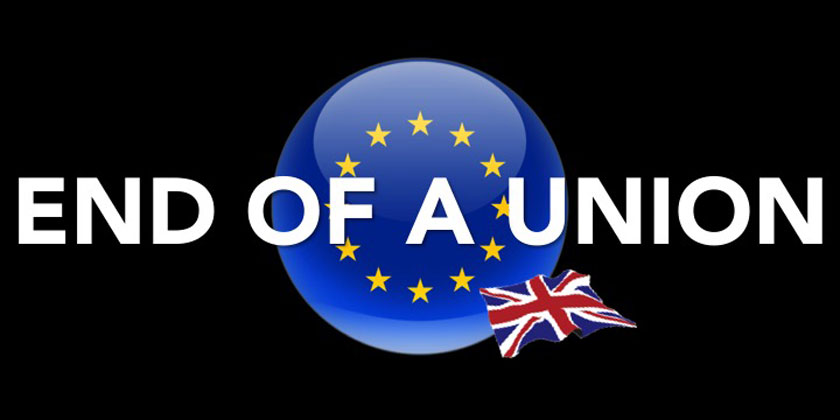
AR
In 2020, on January 31, the UK left the EU.
AR Six years on, Brexit still looks like a colossal unforced error.
I say: Rejoin the EU!
|
|

|
|
2026 January 30
The Universal Wave Function
Karmela Padavic-Callaghan
Eddy Keming Chen and Roderich Tumulka say we cannot have complete knowledge of the universal quantum wave function.
Chen and Tumulka asked whether, given a set of wave functions that may represent our universe, we could pick out the correct one. The universal wave function would have a state with very many dimensions. The pair proved that this state is unknowable.
Tumulka: "It's impossible to determine the wave function of the universe with any useful accuracy."
AR I never dreamed that we could. Incompleteness results in logic and physics have been clear enough for many decades, as I explain for the smart general reader in my latest book Psy‑Phy.
|
|

Bloomsbury
|
|
2026 January 29
David Bowie, Saint
Simon Critchley
Peter Ormerod tells the story of Bowie's life and music through the lens of religion. Bowie was essentially a religious artist.
Beginning in Bromley, where Bowie sang in the choir, continuing with his immersion in Tibetan Buddhism, and on to occultism, Ormerod unpacks the religious preoccupations of Bowie's art in compelling prose.
His book takes on a growing velocity when analyzing Bowie's later work. This momentum develops into detailed discussions of The Next Day and Blackstar, and also Lazarus. Ormerod deals with Bowie as an occasion for close reading.
Ormerod closes with the compelling argument that what drives Bowie's work flows from two sources: life and love. When asked whether he had a devotional practice, Bowie answered: "Life. I love life very much indeed."
A certain incapacity to love was expressed in his music as a painful yearning. He found love both in the simplicity of family life and in the distension of existence that can, if you are lucky, coincide with ageing and dying.
Bowie functioned as a kind of saint. Listening to Bowie is church. Religion is the music, its moving essence.
AR Fascinating how such a brilliant but flawed figure can attract such an exalted interpretation. Yet it's a take on the man that I can well appreciate.
|
|

|
|
2026 January 28
Is Time an Illusion?
Zack Savitsky
Einstein said the distinction between past, present, and future is an illusion.
Don Page and William Wootters imagined the universe as a giant timeless quantum wave function. They split it in two: half for all the stuff we could ever observe, and half as an internal clock, the two connected by entanglement. They showed that this would let time appear to emerge.
Imagine a movie. Once created, it is timeless. But to enjoy the story, we must view the frames in the correct order. Page and Wootters proposed that the universe might be similar. The part of the wave function that encodes it is like the movie frames. The clock orders the frames.
Paola Verrucchi built a virtual model based on the Page−Wootters mechanism by entangling a clock made from an array of tiny magnets with a quantum system that behaved like a spring. From the outside, this system was static, with constant energy. But relative to the clock, the spring showed a timelike sequence of changes. The effect still held in an enlarged model.
Timekeeping carries a cost. Clocks are like engines that work to keep time. A clock creates an irreversible event that can be recorded, raising entropy and emitting heat. The more frequently a clock ticks, the more entropy it generates. A tiny clock that ticks using random quantum processes can run at almost constant entropy, but reading time from it raises entropy.
Experiments using entangled quantum systems could mimic the Page−Wootters mechanism in the lab. We could measure the entropy created by the clocks. The second law of thermodynamics is consistent with universal entropy remaining constant.
We can explain time flow with the clock. Before we measure it, a quantum particle is in a blur of different possible outcomes. An irreversible act of measurement pops it into definite existence.
Verrucchi: "You create time when you ask what time it is."
AR Wonderful! All this physics is entirely consistent with what I say about time and popping in my latest book Psy‑Phy. All I need now is a publisher.
|
|

|
|

|
|
2026 January 22
Davos Special Address
Mark Carney
For decades, countries like Canada prospered under what we called the rules-based international order. American hegemony helped provide public goods, open sea lanes, a stable financial system, collective security, and support for frameworks for resolving disputes.
This bargain no longer works. We are in the midst of a rupture. A series of crises in finance, health, energy, and geopolitics have laid bare the risks of extreme global integration. Great powers have begun using economic integration as weapons. You cannot live within the lie of mutual benefit through integration when integration becomes the source of your subordination.
Many countries are drawing the conclusion that they must develop greater strategic autonomy. A world of fortresses will be poorer, more fragile, and less sustainable. The cost of sovereignty can be shared. Collective investments are cheaper than everyone building their own fortress.
Canada was among the first to shift our strategic posture. We aim to be both principled and pragmatic. We are engaging strategically and calibrating our relationships. We are no longer just relying on the strength of our values but also the value of our strength.
On Ukraine, Canada is a core member of the Coalition of the Willing. On Arctic sovereignty, we call for focused talks to achieve our shared objectives. On trade, we are championing efforts to build a bridge between the Trans Pacific Partnership and the European Union.
The middle powers must act together, because if we're not at the table, we're on the menu. Great powers can afford for now to go it alone. The countries in between have a choice to compete with each other for favor or to combine to create a third path with impact.
Canada is an energy superpower. We hold vast reserves of critical minerals. We have the most educated population in the world. We also have a government with immense fiscal capacity. And we have the values to which many others aspire.
We know the old order is not coming back. We believe that we can build something bigger, better, stronger, more just. This is the task of the middle powers.
AR This is my short cut from a speech I read with admiration. It's certainly a more inspirational speech than anything coming out of the current US administration.
|
|
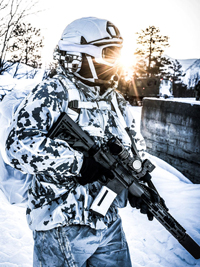
NATO
British commando, Norway
|
|
2026 January 20
America vs the World
Robert Kagan
The Trump administration's National Security Strategy made it official: The United States no longer wishes to provide global security.
Americans are entering a world a lot like that prior to 1945. They will have no reliable friends or allies and will have to depend on their own strength to survive and prosper. This will require more military spending.
No country had ever before played the role the United States took on after 1945. The combination of geography and reach allowed the United States to bring peace, security, and prosperity.
The American order established harmony among the powers within it and left Russia and China isolated and insecure. All of that is now ending. Trump has celebrated the end of the grand bargain.
Europeans now face hostile and aggressive great powers on both sides. They will rearm. If they all armed fully, including with nuclear weapons, they could deter both Russia and America.
Asian partners of the United States will face a similar choice. These rearmed nations will no longer be American allies. They will be independent great powers pursuing their own strategic interests.
The Trump administration is trying to inflame European nationalism, especially in Germany. Without an American security guarantee, Germany will take a more nationalist view of its interests.
All of its neighbors will too. Poland is likely to build up its own military capability, including nuclear weapons. France is an election away from a nationalist victory that will shake Europe.
Japanese rearmament will have similar ramifications. South Koreans may decide to rearm, including with nuclear weapons, as they face North Korea and Japan.
In a multipolar world, everything is up for grabs. For centuries, the ability to maintain and protect a sphere of interest was part of what it meant to be a great power. It was also among the most common sources of war.
A new accord among the United States, China, and Russia would have to settle on boundaries for their relative spheres of interest. Is such an agreement possible? The answer is no.
China and Russia are dissatisfied powers. Beijing and Moscow neither want nor need any restraining accord with the United States. The new multipolar era will be marked by intense competition and confrontation.
This is the new world that America is entering. For decades, much of the world supported the United States. That era is over.
AR All this seems to be on the cards. The joker in the pack is the global reach of the US tech bros. How will consumers worldwide react to losing their right to remain addicted to US tech services?
|
|

|
|
Symmetry or Entanglement?
Jon Cartwright
Hermann Weyl said symmetry governs the order of the universe. Nature behaves the same way in different places, at different times, and under countless other changes. Symmetry explains many things.
Emmy Noether proved that whenever the laws of nature are symmetric under some fundamental shift, there must exist a quantity that is conserved as well. Noether's theorem gave physicists a new tool that revealed common laws to be manifestations of a single underlying order.
Buried in the properties of fundamental particles, gauge symmetries pointed to the existence of new fundamental particles. One by one, these particles were found: gluons, quarks, W and Z bosons, and the Higgs boson. The standard model of particle physics was born.
Theorists posited supersymmetry, which mirrors particles with superpartners, and string theory, with more complex symmetries. But none of the predicted superpartners has been found, while string theory makes no testable predictions at all.
Maybe nature has a deeper preference for extreme levels of quantum entanglement.
Calculations of how protons and neutrons collide and scatter show that the system reaches its highest internal symmetry when the entanglement of the scattered particles is lowest. In a general two-particle collision, the least entangled outcome is also the most symmetric one allowed by low-energy physics. And suppressing entanglement in the high-energy scattering of two generic Higgs bosons drives the equations to their highest symmetry, as seen in experiment.
Mysteriously, nature has three flavors of fundamental particles like quarks and leptons, identical in every respect bar their masses. Researchers exploring how minimizing entanglement would affect flavor mixing between quarks found that minimized entanglement gave precisely the small level of mixing observed in experiments.
After decades of attempts to explain flavor mixing via symmetry, entanglement suppression gives an instant answer. More entanglement would blend everything in a "Magimix" quantum soup.
If minimal entanglement coincides with high symmetry, maybe symmetry begets entanglement. Or maybe reality boils down to patterns of entanglement.
Do quantum events obey conservation laws?
Michael Brooks
Sandu Popescu and Daniel Collins have solved an old puzzle in quantum theory. Conservation is a basic principle of physics, but it leads to a problem.
Imagine an experiment where an electron is fired toward several boxes and might end up in any one. We fire the electron, see where it lands, and repeat the process many times. The number of times it turns up in each box will match the quantum theory prediction. But if we do the experiment just once, there is no way to predict the outcome because quantum theory has nothing to say about single events.
We say the system is in a superposition of all possible states before the measurement. But imagine we are measuring the electron's momentum. Unlike position, momentum is subject to a conservation law. The superposition of the possible values of momentum before the measurement is not the final measured value. The momentum seems to change, violating conservation of momentum.
Collins and Popescu imagine measuring the angular momentum of a particle moving in a circle. Starting from a superposition, we get a definite outcome, so something has changed.
The apparatus that puts the moving particle into its superposition, the preparer, might be a set of laser photons that knocks a trapped ion into a superposition. After the measurement, the sum of the angular momentum of the particle and that of the preparer remains the same as it was when they first interacted. The preparer is part of the superposition and keeps everything in balance.
Collins and Popescu found that the laser field and the ion are entangled in the superposition. Any change in the momentum of the ion is balanced by a change in that of the laser photons. Conservation laws hold for single quantum events.
Can string theory describe dark energy?
Steve Nadis
Bruno Bento and Miguel Montero describe a string theory de Sitter universe with a dark energy that should weaken over time, matching data from the past few years.
The Casimir effect is that in the narrow space between two conducting plates cuts off long wavelengths in quantum fields, reducing the energy density there and creating a force that pushes the plates together.
Bento and Montero applied this idea to compactification, in which the 10D physics of string theory becomes the 4D realm we inhabit. The compactified 6D manifold is like the space between the Casimir plates. Inside the manifold, fluctuations thus generate a Casimir effect.
They counterbalanced the Casimir effect with a flux of field lines winding through the 6D manifold. The Casimir force tends to shrink the manifold, but the flux force tends to expand it.
Bento and Montero found their dark energy was 10−15 Planck units. The actual value is 10−120 Planck units. They started from M‑theory, which gives an 11D universe and after compactification leaves a 5D universe, but they aim to do better.
AR All this physics is fascinating to me, but I appreciate that it will mean little − especially in my short cuts − to many readers.
|
|
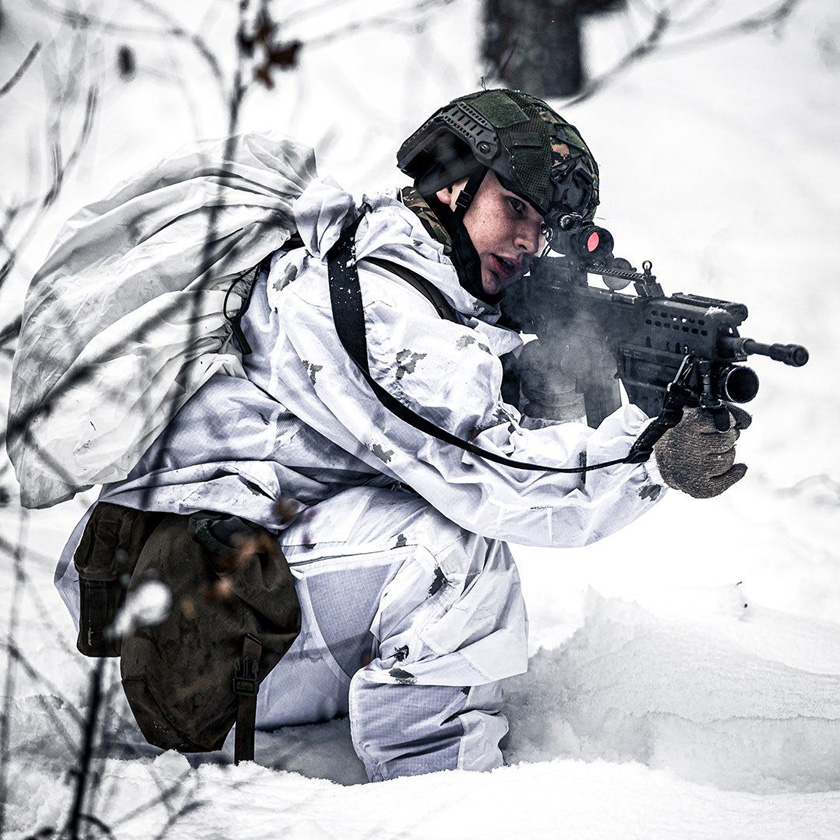
NATO
The UK, Denmark, Finland, France, Germany, the Netherlands, Norway, and Sweden have issued a joint statement
saying Trump's Greenland threat risks a "dangerous downward spiral that undermines transatlantic relations:
"We stand in full solidarity with the Kingdom of Denmark and the people of Greenland. Building on the process
begun last week, we stand ready to engage in a dialogue based on the principles of sovereignty and
territorial integrity that we stand firmly behind."
|
|
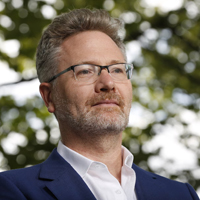
⦿ The Guardian
Adam Tooze in 2018
|
|
2026 January 18
Adam Tooze, Historian
Robert P Baird
Born in London, raised in West Germany, and living in New York, where he teaches at Columbia, Adam Tooze is an expert on the infrastructure of global finance and the economics of the green-energy transition.
Tooze is the author of five books, including Crashed, his 2018 history of the 2008 financial crisis. He also writes regular columns and essays, hosts podcasts in English and German, and publishes a Substack newsletter called Chartbook.
He spends most of his time tracking the rise of China as an economic superpower. His analysis: "My basic wager in interpreting modern history is to bias toward the thought that it might be unprecedented."
Tooze is the product of five generations of university-educated women. His maternal grandparents were wealthy cosmopolitans and his father was a prominent molecular biologist, which took the family to Heidelberg in 1974.
Tooze graduated in economics and moved back to West Germany in 1989, just in time to see the Berlin Wall come down. His research led to a doctorate in history at the LSE and then a teaching job at Cambridge.
Crashed had its origins in a seminar on the philosophy of history he taught at Yale. He analyzed the global economy as a matrix of interrelated corporate balance sheets, which gave him a framework for analyzing how money moved around the world.
Crashed demonstrated the political foundations of the global economic system. Democrats cited it to argue that the 2008 crisis was responsible for the rise of Donald Trump. Tooze enjoys being a sounding board for people with power: "They have the sense that you understand the way in which these pieces move."
Tooze was frustrated with Joe Biden and saw the "narcissism" of the Biden team close up. In all his many years of therapy, he said, there were only two occasions on which he sought help in response to politics. One was Brexit and the other was his encounter with the Biden administration.
In early 2025, Tooze became an American citizen. He says Trump is "obviously a degenerate buffoon" but sees him as a symptom rather than a cause of the US decline. That decline is far less interesting to him than the rise of China.
Tooze has a relationship with Chinese journalist and podcaster Qing Wang: "Her fluency in English expanded this huge emotional world for us, and I really urgently want to reciprocate."
Learning Chinese has been a lesson in humility for him. He's impressed by the speed and scale of China's green-energy rollout: "China is the climate crisis and its solution."
Tooze: "My deep conviction is that the West needs to accept the end of its era of global domination .. We're not the love interest. This song is not about us."
AR I've enjoyed reading various Tooze texts over the years. His big claim about China is well taken. I've thought much the same for some years now.
|
|
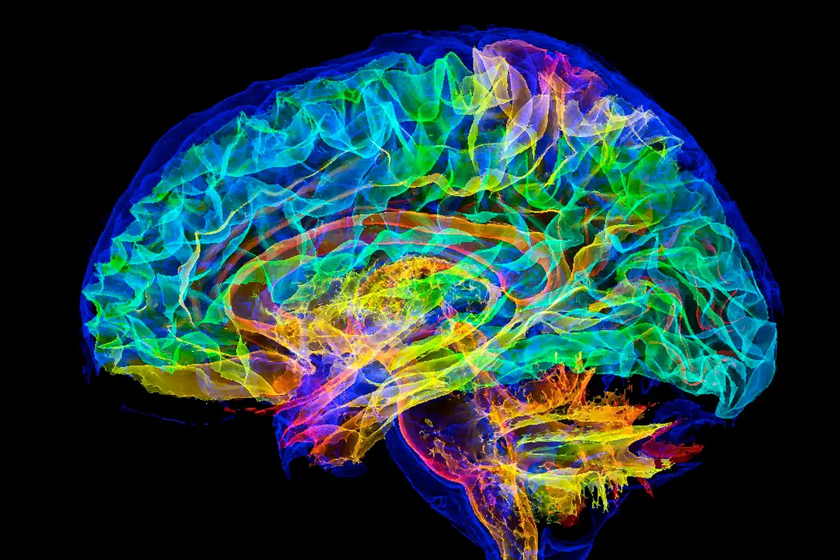
KH Fung/SPL
Digitally enhanced 3D MRI scan of human brain
|
|

|
|
2026 January 14
Supercomputer Simulation of a Human Brain
Alex Wilkins
The latest supercomputers can run simulations of billions of neurons, as many as in human brains. We have long modeled specific brain regions, but we have never put them all together into one big brain model. This is now changing.
Forschungszentrum Jülich researcher Markus Diesmann et al aim to run a spiking neural network with 20 billion neurons and 100 trillion connections on the exascale computer JUPITER (Joint Undertaking Pioneer for Innovative and Transformative Exascale Research) in Germany.
The JUPITER model will be grounded in data from experiments on human brains. University of Sussex researcher and Diesmann collaborator Johanna Senk: "We now have these anatomical data as constraints, but also the computer power."
University of Sussex researcher Thomas Nowotny: "We can't actually build brains. Even if we can make simulations of the size of a brain, we can't make simulations of the brain."
Cellular Bioelectricity
Elise Cutts
Cells use bioelectricity to coordinate the extrusion of sick or struggling cells from tissue to maintain health and keep growth in check.
As epithelial tissue grows, cells are packed more tightly together, which increases the electrical current flowing through cell membranes. A weak, old, or energy-starved cell will struggle to compensate, triggering a response that sends water rushing out of the cell, shriveling it up and marking it for death.
Virtually every cell on every branch of the tree of life expends much of its energy budget on maintaining a voltage across its membrane. The membrane potential stores potential energy that can be released later.
Ions enter and exit cells through specialized protein channels and pumps. Cells use their chemical energy to pump ions against the electric flow. They maintain their membrane potential by controlling the natural current through their membranes.
Neurons use bioelectricity to share information. By releasing neurotransmitters that open and close ion channels, neurons can nudge neighboring membrane potentials up or down. If a nudge pushes a potential beyond a threshold, the neighboring neuron spikes.
All tissues maintain membrane potentials. Epithelial tissues burn a quarter of their available energy to maintain membrane voltages between −30 mV and −50 mV.
Epithelial extrusion keeps tissue growth in check. Cells destined for extrusion lose their membrane potential about five minutes before shrinking and being extruded. The cells dump their water and shrivel up like raisins, which triggers extrusion.
Densely packed epithelial cells squeeze each other. As they get more crowded, the squeezing intensifies. This opens pressure-sensitive ion channels, which let positive sodium ions leak across the cell membranes and into the cell.
A healthy cell activates pumps to push back. But in stressed or sick cells, the membrane voltage falters, the channels open, and water leaks out. Once a cell loses enough volume, it is extruded.
In multicellular animals, embryos generate electric fields that guide the migration of stem cells to their proper locations.
AR The JUPITER work is perhaps the first big news on this topic that comes too late for mention in my new book Psy‑Phy. The bioelectricity insights are entirely in keeping with my expectations.
|
|
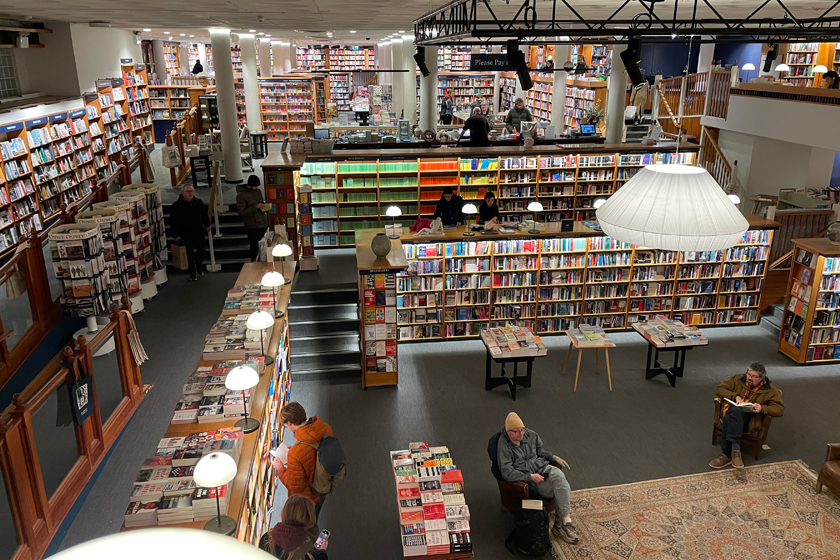
AR
Books, books, books: Norrington room, Blackwell's bookstore, Oxford, January 10
|
|

|
|
2026 January 13
The Platonic Representation Hypothesis
Ben Brubaker
AI systems learn by ingesting lots of data during training. Language models and vision models can develop similar representations, even when trained using different datasets or different data types. A few studies suggest their representations grow more similar as the models grow more capable.
Researchers at MIT describe this convergence with a Platonic representation hypothesis. Plato imagined prisoners in a cave seeing the world only via shadows cast by outside objects. He said the objects we encounter in everyday life are shadows of ideal forms in a transcendent realm.
The Platonic representation hypothesis says the transcendent realm is the real world, which casts shadows in the form of streams of data. AI models are the prisoners. Different models, exposed only to the data streams, begin to converge on a shared Platonic representation of the world.
Neural networks represent words or pictures as lists of numbers, each indicating the degree of activation of a specific artificial neuron. To simplify the math, focus on a single layer of a neural network in isolation and read the neuron activations in this layer as a vector in an abstract space. Two representations are similar if the corresponding vectors point in similar directions.
Within an AI model, similar inputs tend to have similar representations. Feed a list of words into both networks and record their representations of each word. In each network, the representations form a cluster of vectors. We find that different models' representations of the same concepts are often similar. More powerful models seem to have more similarities in their representations than weaker ones.
Researchers tested vision models and language models of varying sizes on a dataset of captioned pictures. They fed the pictures into the vision models and the captions into the language models and compared clusters of vectors in the two types. A steady increase in representational similarity was seen as models became more powerful, as the Platonic representation hypothesis predicted.
Measurements of representational similarity involve a host of experimental choices. But if language and vision model representations are to some extent interchangeable, that could lead to new ways to train models that learn from both data types.
AR Our brains work like this too. They use input data streams to develop models of the external world, and different sense modalities feed into the same (functional analog of a) vector space to build up a mindworld, as I call the brain's model in my new book Psy‑Phy.
|
|

NATO
British Challenger 2 tank, NATO exercise Bold Panzer, Estonia
|
|

The Final Act
|
|
2026 January 5
Homeland Insecurity
David Betz, MLR Smith
Western societies are entering the long twilight of civil war.
In the UK, the 2016 referendum on EU membership exposed the fragility of democratic authority. The referendum result was a close but unambiguous decision to leave. What followed was a prolonged demonstration of elite obstruction.
In the EU, a habitual disdain for unfavorable verdicts from the ballot box illustrated how ruling elites, when confronted with electorates that refuse to ratify their designs, simply set aside the principle of popular sovereignty.
Liberal democracy withers away when the political culture becomes theater. Legitimacy collapses and violence begins. The Brexit saga shows how mass uprisings erupt when those in power alter the rules to the detriment of the governed.
Demographic change drives a perception of cultural dispossession. Native citizens sense political and economic decline as growing Muslim communities resist assimilation. Natives abandon major cities and migrants consolidate in enclaves.
Polarization, disillusionment with normal politics, and yawning gaps between public expectations and elite delivery are the classic precursors to civil war. Erosion of prospects makes governments appear as managers of decline and nudges populations toward civil conflict.
Younger generations across the West are materially disadvantaged compared to their parents earlier. Their prospects for stable employment are diminished, their savings and pensions meager, and their likelihood of owning homes drastically reduced.
A swelling cohort of disaffected young people faces the prospect of living with third-world levels of violence. Women and girls bear the brunt of this insecurity. In Britain, statistics show rape offenses at their highest recorded level, doubled in number over the past decade.
Modern insurgencies and terror networks are leaderless movements that form around a compelling narrative. In Europe, such a narrative surrounds a perception of demographic displacement. Native populations interpret migration as engineered transformation in defiance of popular opposition.
The governing class has no superior narrative and offers only managerial drift. When the governors fail to channel discontent, the marginalized resort to collective action. These events reveal a state without legitimacy, without direction, and without a future.
Three decades ago, most Western states could still be described as cohesive national communities. Today, they resemble patchworks of tribes. This transformation is calamitous.
The ideology of progress in the West underwrote every other social and political claim. Progress is now experienced as dispossession, creating states in which legitimacy has evaporated, grievances are mounting, and the architecture of stability is crumbling.
The most potent source of agitation in Western societies is mass immigration. When immigration is seen as imposed displacement, the result is political dynamite.
Social capital sustains societies just as financial capital sustains economies. Ethnic diversity corrodes it. Diverse communities show diminished trust, weaker voluntary associations, higher levels of crime, and heightened alienation. Shared resentment forges strange alliances with Islamists.
Governance has become economic management. Nations are no longer imagined as communities bound by history or mutual obligation but as balance sheets to be managed. The ruling class is drawn from high finance.
When rulers cannot protect, they lose everything.
AR This is my radically reduced take on a long and heavy scholarly article. I've cherry-picked its hot topics and edited it for clarity, but the main claims and argument are authentic. I don't accept its conclusions at all, but I think we need a clear reckoning with the point of view it represents.
The article struck me as a jeremiad consistent with the views expressed by Nigel Farage in the UK, both in his UKIP days and in his new Reform guise. As this finding suggests, I'm eager to refute its argument, as well as similar claims expressed by Donald Trump and his MAGA supporters.
Refuting a purportedly scholarly argument takes more than putting a political label on it, so let's tackle the claims as they appear here.
First, the Brexit saga revealed a lot more than elite obstruction. It revealed elite dismay, followed by incompetence, as the enormity of the challenge dawned on the people involved. Since the Leave campaign had been based on lies by wealthy tax-dodgers with support from Kremlin manipulators, no‑one could have made Brexit work.
Second, popular disillusion with politics isn't always a righteous response to venal elites. People can be misled or deluded, not only by evil manipulators but also by the sheer opacity and difficulty of the issues that arouse their ire. This is a deep flaw of democracy that makes pawns of rulers and ruled alike in face of wider forces, or fate.
Third, diminishing economic prospects aren't inevitable in a world where AI and robots promise both goods and good order in abundance to any society smart enough to take proper advantage of them. The obvious narrative to help us do so is that it's mainly the expense and dislocation of war − civil or otherwise − that might hinder us.
Fourth, it's too easy to demonize Muslim immigration. Modern societies are surely strong enough to overcome the evils of medieval mindsets that thrive mainly on social alienation and moral atavism. The challenge in the age of social media and secular morality is to forge new narratives of progress that fill the vacuums left by old woke views.
Fifth, sound economic management is integral to good governance, but we need more. We need a great story that sets souls alight − not jeremiads about civil war.
2026 January 4
Trump Targets Caracas: What Next?
Stephen Wertheim
In February 2022, Vladimir Putin declared parts of eastern Ukraine to be independent and sent in Russian troops to serve as peacekeepers. Donald Trump was impressed: "This is genius .. We could use that on our southern border."
In January 2026, Trump ordered military strikes to seize Venezuelan dictator Nicolas Maduro. Trump played the conquering hero: "We are going to run the country .. American dominance in the Western Hemisphere will never be questioned again."
The United States is transmuting the war on terror into a war on narco-terror. Enmity once directed at Mideast terrorists is turning toward threats in the Americas. Trump spoke in his address on Venezuela about the troops he sent into US cities.
Trump took office promising to annex Greenland and take back the Panama Canal. Now that he has ousted Maduro, success may embolden his administration to try to remake the entire Western Hemisphere to its liking.
US oil giants will 'go in'
Callum Jones
Trump claims that US oil giants will rebuild the Venezuelan oil industry: "We're in the oil business .. We're going to have our very large United States oil companies .. go in, spend billions of dollars .. and start making money for the country."
Naked imperialism
Tiago Rogero
The US action in Venezuela follows a long history of interventions in South and Central America and the Caribbean. But it is the first direct US military attack on a South American country.
Covert actions helped topple democratic governments and usher in military dictatorships in Brazil, Chile, and Argentina. Overt US military operations had been confined to closer neighbors in Central America and the Caribbean.
The Trump corollary to the Monroe doctrine − the "Donroe doctrine" − exposes every country in the region to US intervention.
You break it, you own it
Thomas L Friedman
Trump on Venezuela: "We are going to run the country until such time that we can do a safe, proper, and judicious transition .. We are not afraid of boots on the ground if we have to."
Maduro and his allies were controlling Venezuela through violent repression and the stealing of elections. Venezuela has roughly 28 million people after nearly 8 million fled the country, mostly to other Latin American and Caribbean nations.
[Venezuela has more proven crude oil reserves − some 300 billion barrels − than any other country.]
Most of Venezuela's oil is exported to China.
AR Grab the oil, get rich, snub China, impress Putin, thrill the MAGA base, shock libtards worldwide − from Trump's perspective, what's not to like?
|
|

|
|
2026 January 1
Radical Universalism
Jennifer Szalai
Omri Boehm says genuine justice is abstract because it can never be limited to the interests of any one group. He finds fault with those who have hollowed out the idea of universalism by promoting rights and neglecting duty. In contemporary US politics, he says, parochialism reigns: "The right fights in terms of traditional values, the left fights in the name of gender and race."
Boehm was born in Israel. Last January, he was scheduled to give an address at Buchenwald, but the invitation was withdrawn after Israel accused Boehm of "attempting to dilute the commemoration of the Holocaust with his discourse on universal values." His canceled speech laments that the universalist vow of "never again" has too often been taken to mean "never again to us."
Boehm cites Immanuel Kant, who warned about the lazy habit of falling back on an external authority to avoid thinking for ourselves. Adolf Eichmann said in Jerusalem that he had lived his life according to Kant's precepts and was helpless before commands to follow orders. Boehm quotes Hannah Arendt's response: "In Kant, nobody has the right to obey."
Boehm says universalism can be profoundly transformative. Recognizing our duty to one another is a hard sell in a world where we are encouraged to think only about our own interests. Boehm quotes rabbi Abraham Joshua Heschel, who compared the world to a pit of snakes: "The greatest task of our time is to take the souls of men out of the pit."
AR Sounds interesting − and the book is short enough to merit a quick read. I'm glad it comes out in favor of Kantian universalism.
|
|


